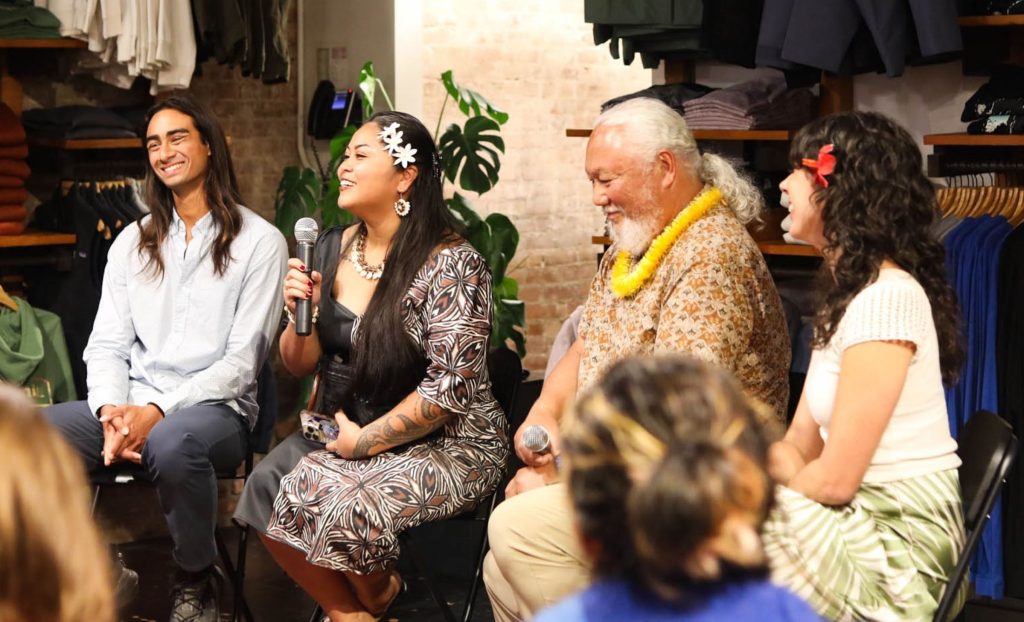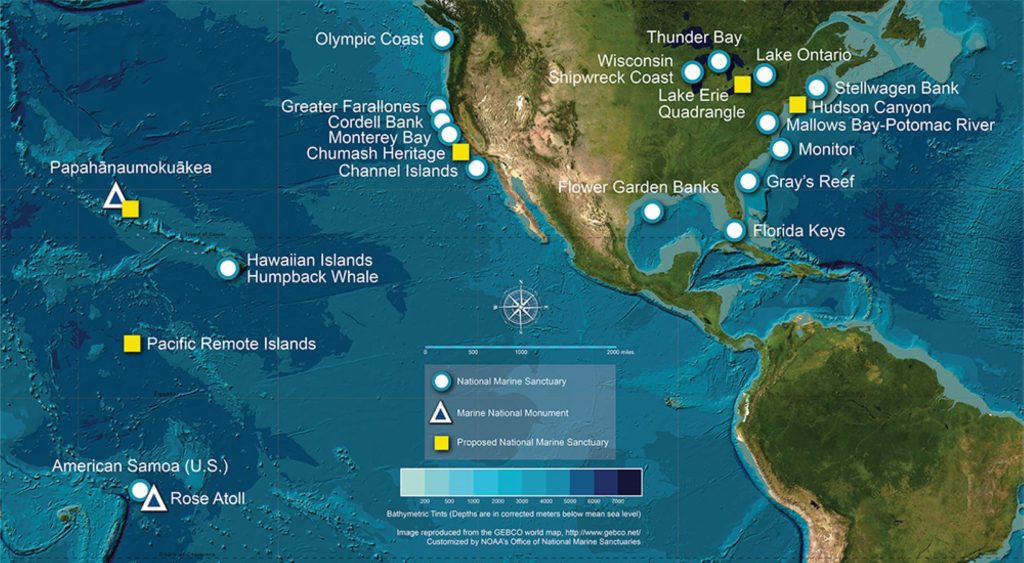Indigenous leaders join former Secretary of State John Kerry in push to protect Pacific Remote Islands
Indigenous elders, young ocean leaders, Pacific Island educators and ocean climate policy experts earlier this week called on the White House to act on President Joe Biden’s commitment to preserve the Pacific Remote Islands, which would create the world’s largest protected marine area while honoring Pacific Islander heritage.

“The Pacific Remote Islands are among the world’s last wild, healthy ocean ecosystems,” said former U.S. Secretary of State and Special Presidential Envoy for Climate John Kerry in a video address released during a Climate Week NYC event earlier this week hosted by Patagonia in New York City. “They hold an immense natural and cultural heritage, which now is even more vulnerable in the face of the climate crisis. Now is the moment to protect this special place to the fullest extent and to create the world’s largest, highly protected marine area.”
Kerry expressed support for full protection of the Pacific Remote Islands, advancing the nation’s commitment to the America the Beautiful initiative’s goal of protecting 30% of U.S. marine waters by 2030.
Biden has one of the strongest climate records of any U.S. president.
The president in March last year directed U.S. Secretary of Commerce Gina Raimondo to consider initiating action on the Pacific Remote Islands Coalition’s request to designate the region as a national marine sanctuary, protecting an additional 777,000 square miles of submerged lands and waters in the U.S. Exclusive Economic Zone.
His administration also led a renaming process, gathering input from more than 16 nations, republics, commonwealths, states, territories and countries throughout Oceania to rename the area in a way that honors the pre-colonization and heritage of Pacific peoples of the region.
Pacific Remote Islands Coalition leadership encourages the president to meet his America the Beautiful 30×30 goal by expanding protections for the area and collaborating to design a co-management plan that includes indigenous Pacific Islanders.
“Co-management is a pathway for shared stewardship with indigenous communities,” said Lauren Swaddell, senior associate at The Pew Charitable Trusts, a Pacific Remote Islands Coalition member and CHamoru from Guam. “It’s time for us to chart a new path, one in which Pacific Islanders from the U.S. territories are not only respected and listened to but at the decision-making table.”
The Climate Week NYC event also included a panel of speakers with indigenous or special ties to the Pacific who pushed for ocean protection and connection throughout communities. Panelists included Swaddell as well as:
- Bodhi Patil, an United Nations-recognized and award-winning Gen Z ocean climate “Solutionist.”
- Sabrina Suluai-Mahuka, the first American Samoan to win the Presidential Innovation Award for Environmental Educators from U.S. Environmental Protection Agency Region 9 and South Pacific Academy principal.
- Solomon Kahoʻohalahala, a seventh-generation Native Hawaiian, kupaʻāina from Lāna’i and Pacific Remote Islands Coalition member.
The islands and atolls of the Pacific Remote Islands in the Central Pacific have long had deep culutural and historical significance for native Pacific Islanders’ cross-oceanic migration, voyaging and other practices, including the Marshallese, Hawaiians, CHamorus and other Pacific cultures.
“Our Kumulipo ties us to the ocean: where all life began,” said Solomon Kahoʻohalahala, referring to the Hawaiian creation chant and speaking about the origin story and genealogy of Native Hawaiians. “The Pacific Remote Islands are a source of our creation. We must care for — not extract — the places that hold our ancestral connections.”
This region of the Pacific also depends on healthy ecosystems with intact biological indicators.
They are home to resilient coral reef ecosystems, including threatened and endangered wildlife such as seabirds, sharks, rays, sperm whales and blue whales, the leatherback sea turtle and deep-sea life found nowhere else on Earth.
The Pacific Remote Islands Coalition has worked since 2004 to protect the cultural, natural and historical legacy of the region’s special islands, atolls and reefs.
Its diverse network includes elders, fishers, educators, cultural practitioners, nonprofits, community groups and scientists from throughout the Pacific Islands and beyond.
Community leaders also say it’s urgent to protect the ocean for the sake of future generations.
“As Pasifika leaders, we understand that the protection of our oceans and the rich natural and cultural heritage of places like American Samoa can no longer be left for future generations to solve. We are the leaders we’ve been waiting for,” said Sabrina Suluai-Mahuka. “The time to act is now because our youth deserve a future where their connection to the land and ocean is not just remembered, but preserved. I refuse to leave this burden to my daughter, to fix what should have been protected by my generation and those before us.”
Sponsored Content
Comments

















_1770333123096.webp)


